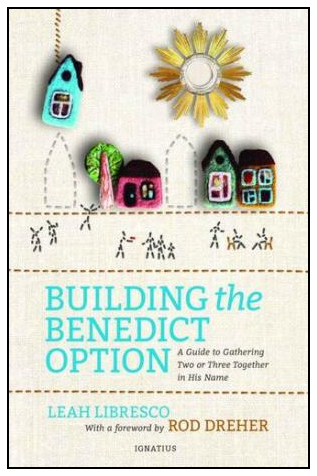The Spectrum of Beliefs
As you might know, the Sadducees were a religious/political group at the time of Christ who were the power brokers who had worked out a modus vivendi with the Romans; they appointed the Jewish high priest and held a majority in the Sanhedrin. As the Gospels tell us, they did not believe in the afterlife and held that only the five Books of Moses were inspired Scripture.
On the other hand, the Pharisees were the strict literalist biblicists who observed all of the rituals and rules in the Law, Psalms, and Prophets – what we the Old Testament today, but they also held to the Talmud, a collection of explanations and clarifications to their Scriptures that added hundreds of extra rituals and rules. As Christ said, they insisted on ritual washing of hands, plates, and cups, not doing "work" on the Sabbath such as picking and rubbing heads of grain and eating them.
In modern terms, we might call the Sadducees "liberals/relativists" and the Pharisees "conservatives/literalists." On the far extremes of the social and political spectrum, each side can tend toward absolutism. The far left insists the Scriptures shouldn't be taken literally – you should believe nothing in particular but anything in general including dozens of genders and cohabitation – just abort those inconvenient babies, that we should just vaguely be nice to our neighbor and serve society, that everything is relative and there are absolutely no absolutes (except that statement itself).
The far right in response believes in lifelong marriage between one man and one woman to have a big family, insists on a literal interpretation of the Constitution (but we shouldn't get involved in "dirty" politics) and of the Scriptures (but my interpretation of the Bible is right and yours is wrong – this has led to over 20,000 mutually contradictory denominations), just evangelize to save people from the coming tribulation and the fires of hell.
But you've probably seen the color spectrum depicted not just in a straight line as above, but as a "color circle" in which the purple and red curve around to merge into the violet. So by this we can see how absolute relativists and absolute literalists merge into similar forms of extremism: the far-left anarchists and the far-right nutcases – both extremes meet behind the barn and duke it out. How can we avoid this, how can we find the "golden mean" in-between?
In the year 325 A.D. the Church was just emerging from the catacombs and violent persecution by the Greco-Roman empire, but was facing a more serious danger – that from within. A certain liberal clergyman, a deacon by the name of Arius from Alexandria, had begun teaching that Jesus was merely a created being, perhaps a holy man, a moral teacher or a prophet, but not God incarnate. In response, another deacon from Alexandria by the name of Athanasius held fast to the traditions handed down from the beginning of the Christian faith that Jesus was fully God and fully man from the very instant of His conception by the Virgin Mary. This discord spread through the whole Church so that the bishops had to call a council in the city of Nicea.
After weeks of discussion and debate, Athanasius led the charge against Arius' position: Athanasius won the day, Arius was declared a heretic and was driven out of the Church – excommunicated. His followers were cast out of the empire into the Arabian desert, where their idea that Jesus was not God combined with the later heresy of iconoclasm and was picked up by Mohammed to form the basis of Islam.
The Nicene Creed contains the core beliefs of Christianity: Father, Son, and Holy Spirit, one visible, holy and universal Church based on the Apostles, baptism for remission of sins, and eternal life. The "golden mean" – the true Church – teaches that we must combine ortho-doxy (right belief) with ortho-praxis (social ministry). Anyone who sincerely confesses this Creed and puts it into practice is a Christian, and anyone who cannot or will not confess and practice it is not a Christian.
"But be doers of the word, and not only hearers, deluding your own selves. For if anyone is a hearer of the word and not a doer, he is like a man beholding his natural face in a mirror; for he sees himself, and goes away, and immediately forgets what kind of man he was. But he who looks into the perfect law, the law of freedom, and continues, not being a hearer who forgets but a doer of the word, this man will be blessed in what he does. If anyone among you thinks himself to be religious while he doesn't bridle his tongue, but deceives his heart, this man's religion is worthless. Pure religion and undefiled before our God and Father is this: to care for the orphans and widows in their affliction, and to keep oneself unstained by the world." (James 1:22-27)
Which one are you?
Go to ARC-News to read our free e-newsletters and Subscribe!


No comments:
Post a Comment